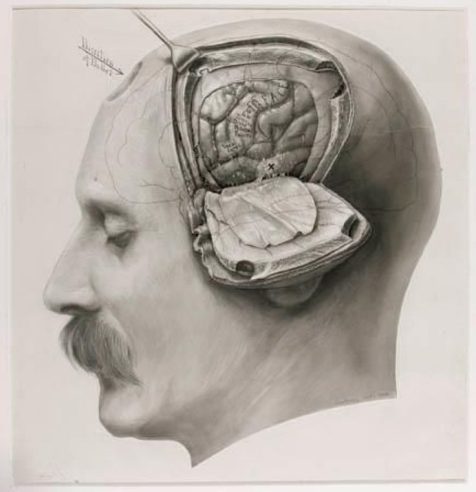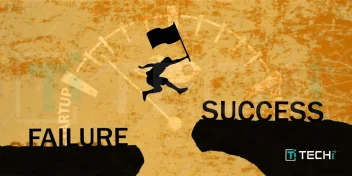In the past few weeks, the internet has worked itself into a state over one question: does the web make people stupid?
It’s a discussion that in large part was started by Nick Carr, whose recent book The Shallows argues that the internet is changing the way our brains work for the worse. People like Clay Shirky have said, no the web is making us smarter, while others have responded by saying that the online world is not inherently good or bad – it’s just change.
Who’s right? Well, they all are. But if the future is all about the web – and, make no mistake, it is – how is the internet changing how we think?
The Way We Used To Think
For the last little while – let’s say, oh, three thousand years – Western thought has very much been about two things: logic and linearity. If you ever slogged your way through Plato in high school, you’re familiar with this. The way to the truth was about logically moving through arguments from start to finish, weighing and measuring each and then, at the end of the process, arriving at a conclusion.
It’s also not a surprise – or a coincidence – that this ‘linear logic’ found a home in a book – an object that basically guides you to move through it from beginning to end in a straightforward fashion.
And the people who made really great strides in Western thinking were able to do this through two ways: really plowing through a lot of stuff to arrive at a new conclusion, like Immanuel Kant or Karl Marx; or people who came at things from a new perspective to arrive at a new idea, like René Descartes or Albert Einstein.
And really – until you get to the second half of the twentieth century, at least – things pretty much stayed focused on what you could call ‘book thinking’. This meant putting together ideas in an orderly and rational fashion and moving towards something called ‘the truth’.
How The Web is Changing Us

But according to thinkers like Nick Carr, the internet is changing this emphasis on deep thought and long-form thinking by doing things to how we process information. He points to scientific studies that show that people retain less information when they read pieces with lots of links or that students who use laptops in lectures do worse when they are later tested on what they learned. So book thinking is being hurt by the web.
A lot of this has to do with the pleasure we get from receiving new information. Humans are wired to seek out new data, which is why it feels good to have fun surprises. In the same way, we like constant streams of new information like those which we get on the web because they give us the same sort of pleasure (and this explains why I never shut Twitter off and keep Google Reader open all day).
The downside, however, is that all this new information can often prevent or preempt the sustained, linear thinking necessary for deep thought and analysis. It’s not so much a question of whether the internet is making us dumber, as much as it is spreading out intelligence across a wider plain, fragmenting our attention over many things instead of allowing ourselves to hone in on a specific task or idea. This is a real problem, not simply the paranoia of luddites. Any tech-head who tells you their attention span hasn’t changed over the years is either a liar or a superhuman.
But not all this mental change is happening for the worse. What if our thinking was changing to meet the challenges of the contemporary world?
Networked Brains for a Networked World

So, are our brains ruined? Not quite.
One of the things that has been missing from the conversation is this: it might be a good thing if the web changes how we think.
See, the linear book thinking we’ve relied on for so long has served us well. When you’re trying to solve a problem like the electrical grid or a social issue like getting women the vote, setting out clear and logical arguments in books is a good way to go.
But that kind of thinking may not be serving us as well now. As an example, let’s take the recent financial crisis. How many people can give you a neat little explanation of what went wrong? Or a simple infographic? Sure, people have tried, but it’s all just a little too complicated to make much sense in a clear, linear way. There were so many variables and so much data constantly ricocheting around, no-one – not even the best and brightest – could make clear sense of it.
This is the problem we face now – we live in a world that is so complex and overlapping, the long-form thinking of the book can sometimes be too slow and too linear to make sense of things. Something like the financial crisis is a sign that we need new ways of thinking to deal with the world that responds to the fact that so much of our world – the economy, our governments, our environment – are actually incredibly complex systems that are interconnected with other really complicated systems.
As the book and book thinking are similar – long-form, linear etc. – the web and web thinking work the same way. Web thinking is, well, more web-like – it’s more about making multiple connections between ideas in a pattern that may or may not be in order. It’s about constantly evolving information. It’s about designing new ways of approaching problems that aren’t about a a simple beginning and end, but unexpected connections in unexpected ways.
Put more simply, if book thinking works like a book, network thinking works like a network: multiple, layered, non-linear and dynamic.
Sure, it’s vague – but we’re just muddling our way through some of the biggest changes to human thought in centuries. It will take time. And it’s important. But…
Don’t Throw Away Those Books Yet!

Yet, before we get too reliant on web thinking, it’s worth pointing out that the kind of work that puts things into context – like, say, this blog post – leans more towards the book thinking side of things.
So, to be clear: we need both types of thinking. The non-linear, networked kind, and the logical, long-form book kind. Because tomorrow’s problems will require both.
Debates over whether the web is making us dumber or smarter are vital. But we also need to think about how our definitions of intelligence change as the world grows more complex, non-linear and overlapped.
So maybe the real question is this: in 100 years from now, what will the definition of smart be?





11 User Comments
Laura
Great read, it makes you think that the philosophers of today could in fact actually be bloggers. The people who see these inter-connecting links between the different sections of the complex world and making it knew to everyone.
And it has been known for a long time that the way we are taught in school doesn’t really work, at least not for most of the population. But perhaps the way we pick up information through the internet is??? Discovering information in a dynamic fashion, perhaps similar to how we would have learnt in our hunter-gatherer days?… Just a thought.
Though I definitely agree with your conclusion – as with everything in life, it is best if you can come at the problem from several angles to reach a more fully developed conclusion. And why should learning/thinking be any different?
Thanks Navneet Alang, this has really got me thinking (both linearly and dynamically).
Jamal
Good Read!
I do think it about time people of the older generation to understand that their methods are not always best suited for every situation. The web gives us a new way of thinking and we should be embracing it and mixing it with logical thinking when necessary.
Hina
it depend on our thinking,web give us a new world,it depend on us we use it good or bad.
Amber
Excellent article.
I think balance is key – only using one side of your brain is like using one leg to walk or one eye to see. You need both sides.
alpha
Nice article.
Really gets you thinking.